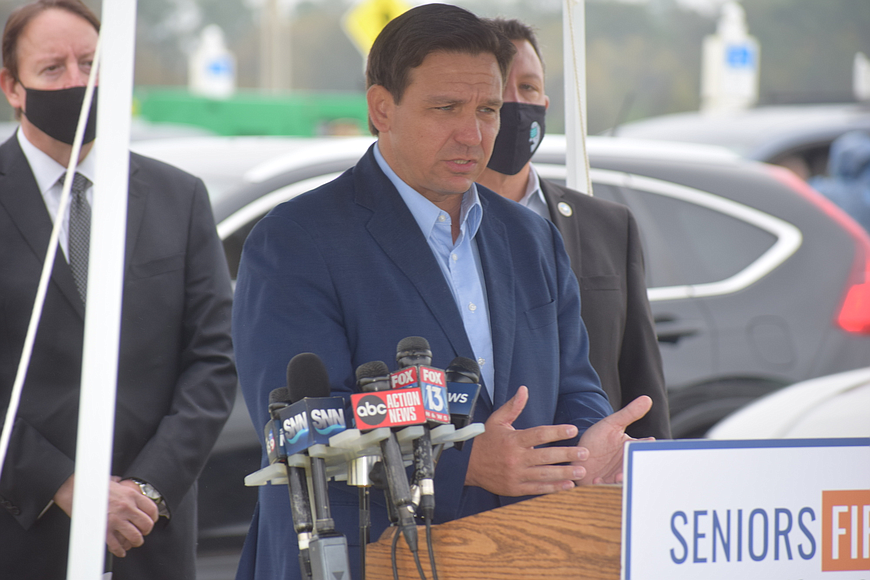- October 22, 2024
-
-
Loading

Loading

After failing to pass any meaningful legislation to address Florida’s looming property insurance disaster, state legislators will return to Tallahassee in May for a special session.
Speaking in Jacksonville on Monday, April 18, Gov. Ron DeSantis announced he would call the legislature back for a session to “bring some sanity and stabilize and have a functioning market.”
“I’m confident we’re going to be able to get that done,” he said.
DeSantis, after speaking with legislative leaders, will sign a proclamation later this week setting the date and framework for the session. He says other issues could be incorporated into the session as well. Property insurance is a topic of major importance in Florida as rates continue to skyrocket and concern grows that a natural disaster could bring the entire system crumbling down.
Although a handful of bills to address the issue came up during the legislative session earlier this year, there was no meaningful reform to a system that businesses, property owners, government officials and those in the industry all agree is in desperate need of reform.
The problem is the high cost of doing business in Florida. And one of the main culprits, critics say, is how much attorneys are allowed to charge.
According to the Florida Association of Insurance Agents, between 2013 and 2020, insurance carriers in Florida paid out $15 billion in claims costs. Of that, only 8% was paid to consumers. Attorneys got 71%.
This translates into higher costs for Florida home and property owners — who paid $651 more in rates in 2020 than property owners in Georgia and Alabama.
And it’s going to get worse. Insurance carriers are asking for and getting massive rate increases in order to stay competitive in the state and to be able to cover claims. That’s if they decide to stay. Multiple insurance companies, frustrated by Florida’s system, are choosing not even to do business in the state.
All of this is creating major problems for Citizens Property Insurance Corp., which is only allowed to raise its rates 11%. Citizens was created in 2002 as a last resort for property owners unable to secure coverage from private companies, but industry leaders and critics say it is too often the only choice or one of the few choices.
According to Citizens, it is adding about 5,000 new polices a week and had 759,305 policies in effect as of Dec. 31. Citizens did hit 1.4 million policies in 2012, but the number of policies slowly fell in the years since, reaching 421,332 in 2019.
The concern is with Citizens being overburdened, a major hurricane could cost the state billions, with rates on most other insurance policies in the state spiking to cover claims and insurance carriers without enough reserves collapsing.
Agents and lobbyists aren’t the only ones concerned about the state of property insurance and how attorney fees are affecting the market.
In December, when Citizens’ board approved the rate hike, the organization reported the state’s property insurance market was facing major challenges. It said the 52 private companies writing 79% of property insurance policies in the state lost $847 million through the third quarter of 2021. While that was happening, Florida led the nation in litigation.
According to Citizens, Florida accounted for 8% of policies in 2019, yet the state accounts for 76% of all litigation nationwide.